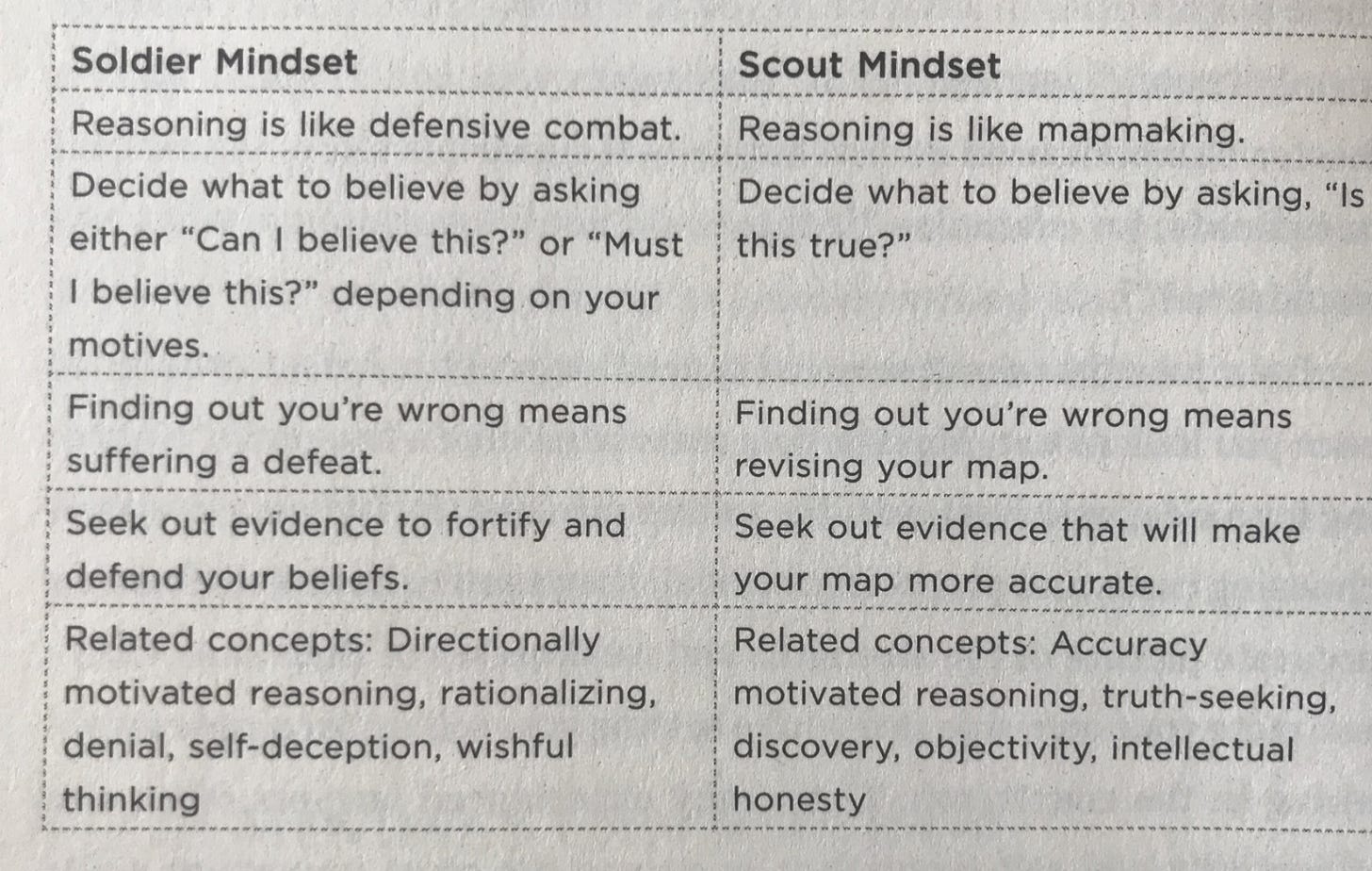Don’t trust the vibes
How to be more truth-seeking
Before I came to America, I didn’t spend much time thinking for myself.
I lived in Singapore till I was 24 — and Confucian culture, which I grew up in, dictates that you should always automatically respect authority figures like your parents, your teachers, the government, and anyone older than you.
It’s a huge red pill when you realize that a ton of mainstream narratives around you are not just plain wrong, but actively harmful to the causes they claim to help.
Consider popular memes that still live on today, after being proven wrong many, many times:
“Capitalism is evil”
Actually, it’s the best economic system that we have so far, though it’s clearly not perfect. Nearly 1B people have been taken out of extreme poverty from 1990 to 2010.
“Nuclear is dangerous”
Actually, it’s the safest source of energy – it’s 800x safer than coal.
“Defund the police”
Actually, almost 80% of Black Americans say they would like more or just as much of a police presence today in their communities.
“Living in the countryside is more sustainable than living in the city”
Why does this matter? Because policies are downstream of memes, and bad memes can hold back human progress.
Distrust memes that give you good vibes
Interestingly, I’ve noticed many memes that go viral, like the ones I’ve listed above, have the inherent property of making the believer feel morally superior – more virtuous and compassionate.
This is especially true of the radical left, who try to explain much of the world along the oppressor vs oppressed basis. If you start accusing people who don’t believe what you believe as not just wrong, but evil, beware – there may be an untruthful meme inside you fighting for survival.
One way to train yourself to be more truth-seeking is to notice when a meme makes you feel good about yourself when you adopt it.
Tyler Cowen goes even further, and says you should be suspicious of all stories, as people are mentally lazy and are too easily seduced into using simple stories to explain the world. One type of story he warns against is good vs evil stories: “As a simple rule of thumb, just imagine every time you’re telling a good vs. evil story, you’re basically lowering your I.Q. by ten points or more.”
Reason from first principles
“I think people’s thinking process is too bound by convention or analogy to prior experiences. It’s rare that people try to think of something on a first principles basis. They’ll say, “We’ll do that because it’s always been done that way.” Or they’ll not do it because “Well, nobody’s ever done that, so it must not be good. But that’s just a ridiculous way to think. You have to build up the reasoning from the ground up—“from the first principles” is the phrase that’s used in physics. You look at the fundamentals and construct your reasoning from that, and then you see if you have a conclusion that works or doesn’t work.” - Elon Musk
The road to hell is paved with good intentions. Many ideas that feel intuitive can actually be harmful.
For example, implementing rent control can actually lead to rents increasing in the long term, because it decreases the overall supply of housing. Yet many policies like this get created all the time.
For me, this was the hardest one to learn. I had to make a concerted effort to become more of a first principles thinker over the years. I find that the two techniques mentioned here, “Socratic Questioning” and “The Five Whys” are helpful.
Adopt a scout mindset
“We are pragmatists. We don't stick to any ideology. Does it work? Let's try it, and if it does work, fine, let's continue it. If it doesn't work, toss it out, try another one. We are not enamored with any ideology.”- Lee Kwan Yew
Julia Galef frames it beautifully in her book, called The Scout Mindset.
The Scout Mindset is about truth-seeking. It’s about training yourself to see things as they are, not as you wish they would be.
In comparison, the Soldier Mindset is where you seek to defend your beliefs against all threatening evidence.
Whenever you encounter a viral meme, especially one that makes you feel good by believing it, imagine that you’re encountering a super-engineered mind virus that’s determined to make you its host. Distrust it automatically.
In Thought Contagion, Aaron Lynch analyzes what makes an idea a potent meme, and what factors make it out-propagate other memes. Unfortunately, the truthfulness of the meme is only one of the seven factors that cause memes to propagate.
I’d even go as far as to say that the more viral a meme is, the less true it is. That’s because the truth is usually too nuanced, lengthy, and boring to be neatly packaged up into a punchy tweet.




It's funny, I find that my (and many others') writing can mostly be boiled down to one thing:
Adding nuance back into topics and ideas where nuance has been stripped away.
Great post.
If what doesn't kill you makes you stronger, then what makes you feel good makes you weaker.